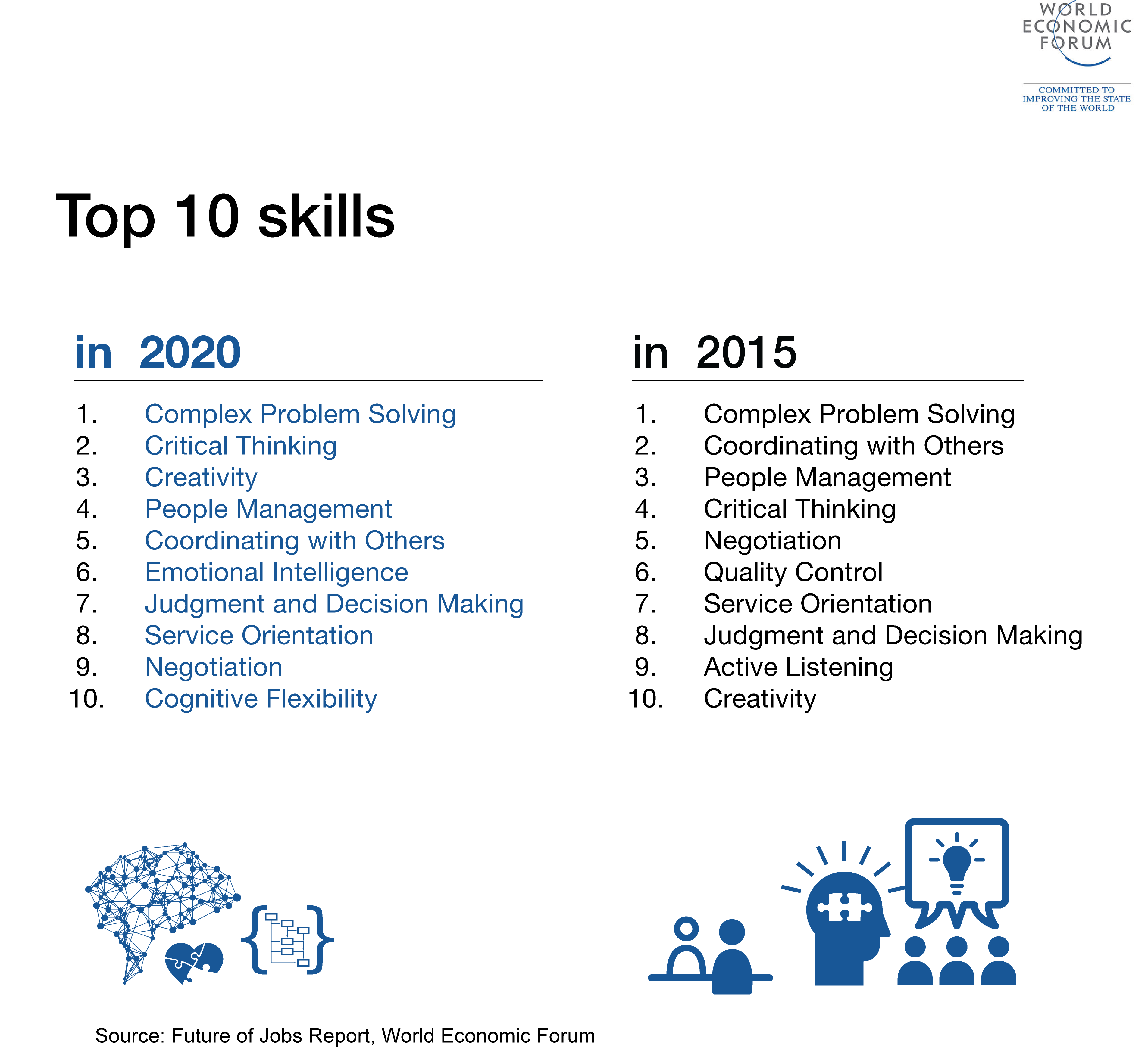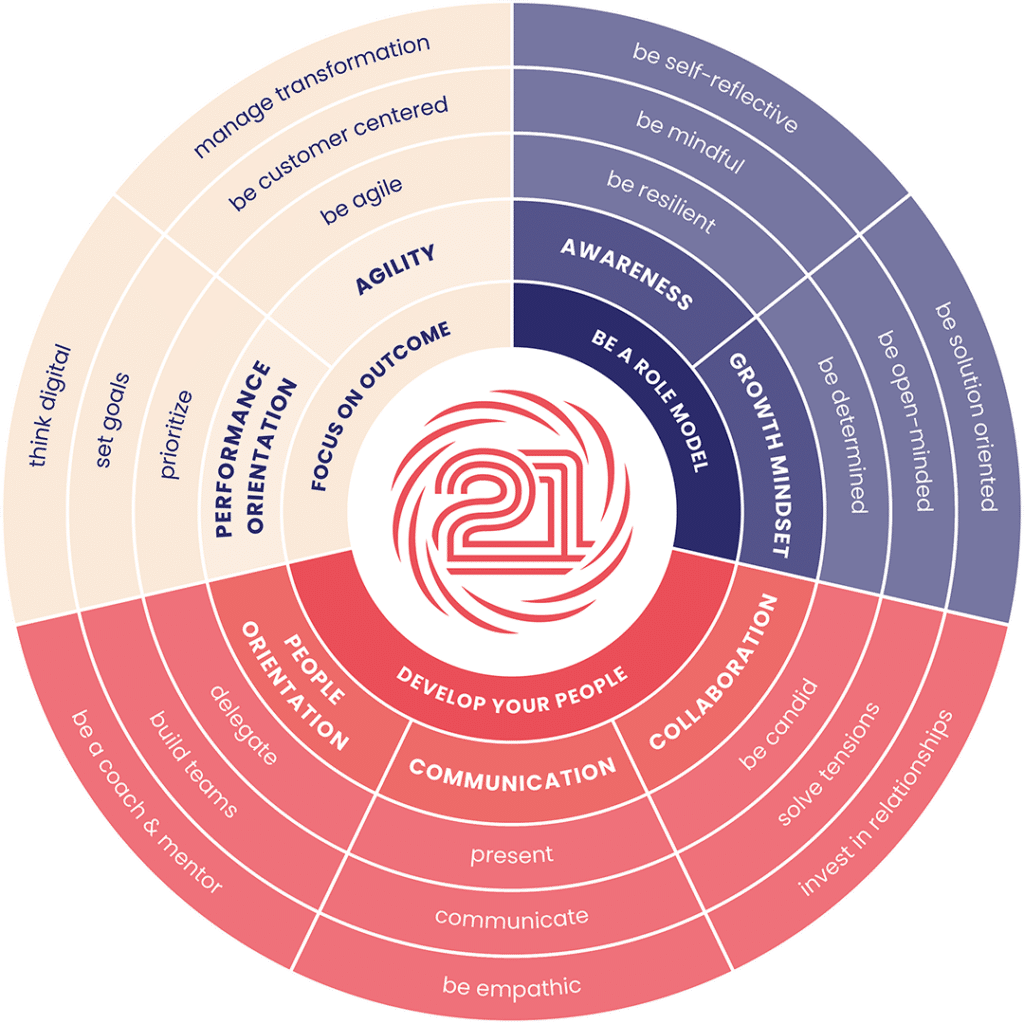What specific skills do leaders and employees need today?
Managers are supposed to excel in their expertise, be analytical and strong decision-makers. Employees, however, should be loyal, productive and precise. These or similar skill-stereotypes still hold strong in many boardrooms and HR departments in the 21st century.
But are they still suitable for today’s work sphere?
No! – That’s what numerous current studies on the topic conclude. The Harvard Business Review even presents it as completely outdated and instead recommends businesses hire leaders who are able to motivate global, diverse and digital teams and, at the same time, have the ability to quickly adapt to changes and various environments.
This tendency not only surfaces in scientific studies – it is also becoming more and more evident in real life. While job offers for leadership (C-suite) positions showed a 40% decrease in focus on subject-specific expertise in the last 20 years, the importance of comprehensive social skills rose by almost 30% in the same timespan.
The same is true for non-management positions. The Word Economic Forum of Davos has been dealing with this topic for a while and already stated in 2016 that “over the years, 35% of skills needed for being professionally successful will change.” The rapid progression of work environments makes hard skills fade more and more into the background. While traditional management skills are hardly found in the top skills list, competencies such as complex problem solving, critical thinking and creativity top the list.

Forbes frequently analyzes required skills trends and publishes relevant updates and insights. According to their recent publications, the basic tendency remains, however, new skills such as “active learning and learning strategies”, “leadership” or “cultural sensitivity & awareness” have joined the list in 2022.
At Leaders21
.. our mission is to equip people and organizations with these exact “21st Century Skills” to enable career and business success for everyone. To achieve this mission, we created the Leaders21 model which, on one hand, targets personal and organizational development (“be a role model”), and on the other hand also focuses on team (“develop your people”) and business success (“focus on outcome”).
Want to learn more about our approach? Just keep scrolling 👇
Source: Leaders21.com
Definition: competencies and skills
In our 21st Century Skill Model you will find 7 competencies with 3 skills each. We would like to briefly explain why we use these two terms and what we mean by them.
Leaders21 Skills
“Skills” can be translated as ability, being able to do something or having somewhat of an expertise in something. Without wanting to start an academic discussion now: Yes, there are of course many different interpretations of the word. What matters to us is that, in the context of Leaders21 discourse, we consider the term “skills” as things that need to be learned and subsequently applied. Accordingly, you will find skills named “be resilient” and “invest in relationships” as well as “think digital” and “communicate” in our 21st Century Skill Model.
Leaders21 Competencies
Skills are basically our foundation and include our abilities and capabilities. In short, skills are what we have learned and also our innate talents. A competence includes our skills and goes a bit further: In a competence, the skills are reflected in action. So a competence is the combination of knowledge and skills and thus leads to the ability to act. We speak of a competent person when he or she can act adequately in a (difficult) situation and solve a problem in different variations and situations. This means that one’s own competencies can always be worked on and further developed.
For a better understanding, we have a concrete example based on the competence “Awareness”:
You get content on the skills “be self-reflective”, “be mindful” and “be resilient” and thereby get to know them better. For example, you will know why it is important to be aware and with which exercises you can train your awareness. You develop the actual competence when you go beyond your theoretical knowledge and consciously integrate and apply the exercises or tips in your everyday life. Since you do this in the long term, you constantly pay into your awareness competence account.
21st Century Skill Modell
As already mentioned, all 7 competencies and a total of 21 skills can be found in the 21st Century Skill Model we developed. This forms the basis for your personal development – as an employee or leader – and is reflected not only on our 21st Century Skills Development Platform, but also on an individual level in coaching & mentoring, on a team level in training, and from an organizational perspective in consulting. Although each Leaders21 service offers added value for the further development of 21st Century Skills, we recommend a combination in the sense of blended learning 💡
Want to learn more? Get in touch with Fritz, our CCO, and exchange ideas about the possibilities!
Fritz Krassnitzer
Email: fritz.krassnitzer@leaders21.com
Link to profilepage



